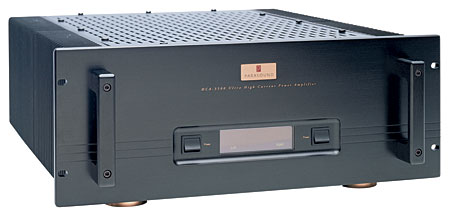Just in case you didn't know this when you bought the Parasound HCA-3500, it says on the cover of the owner's manual: "Designed in California, USA by John Curl." Described as an "audio design legend," an appellation with which he seems quite uncomfortable, John Curl has certainly been around the audio business longer than most. He's been employed by or has consulted for some of the biggest names in consumer and professional audio—including Harman/Kardon, Ampex, and Mark Levinson—and was the designer of at least two classic products: the Mark Levinson JC-2 preamplifier and his own <A HREF="http://www.stereophile.com/phonopreamps/640">Vendetta Research phono stage</A>, still considered by many people to be the best phono stage ever built.




